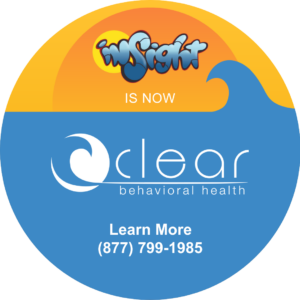Relationship dynamics are the consistent patterns of interactions between two partners. These dynamics affect the relationship overall and also the mental and emotional well-being of each partner.
Healthy relationships look different for everyone because different people seek different things from relationships.
Whether you are currently in a happy relationship, recovering from an unhealthy one, or putting some thought into what you’d like from a future relationship, it is helpful to know the key components that help make up a healthy relationship and what you should be looking for and avoiding altogether.
What makes a healthy relationship?
Healthy relationships involve a lot of hard work, commitment, and willingness to build a solid dynamic with another person. Life presents many challenges, and no relationship is exempt from struggles.
Every relationship is unique to the people in it — both partners’ wants, needs, goals, ideals, values, and many other factors define a healthy relationship. However, there are a few characteristics that most healthy relationships have in common.
Trust
Establishing, building, and maintaining trust makes both people feel safe in a relationship. Perhaps previous romantic relationships have made it difficult for one of you to trust people because of emotional abuse, cheating, or lying. A loss of trust in a relationship can result in problems with self-confidence, communication, and trouble planning for the future.
In successful relationships, trust is established and maintained by the two partners being open and willing to nurture and work on the relationship. Both partners should follow through on commitments they make, be consistent with their words and actions, and talk openly and honestly even when it’s difficult.
Friendship
Having fun with your partner is absolutely critical to a good relationship. Friendship can strengthen relationship dynamics by building emotional and physical intimacy between two people. It also establishes mutual respect for someone who isn’t just a romantic partner but a valuable, important person in your life.
Some couples start off as friends and establish a strong platonic foundation before they embark on a romantic relationship. Others meet and start a relationship without knowing the other person as a friend first. Both of these are ways to create a healthy relationship; the important thing to know about keeping relationships healthy is that a friendship takes time and effort.
Don’t overthink pursuing a friendship with your partner; keep it simple and find common interests or hobbies you enjoy doing together. Spending quality time together is what matters.
Open communication
Communication is arguably the most important part of a relationship; if two partners are able to be open and honest (even when it’s uncomfortable) about their wants, needs, emotions, and expectations, most relationships can be very successful.
Having a safe space to talk openly creates connection and comfort between two people. Miscommunications are common in any relationship, but your partner is not a mind reader. It’s best to find ways to communicate effectively in a way that your partner responds to. Good communication also means listening and letting your partner talk.
Failed relationships almost always involve communication issues between two people that cannot be resolved. Many relationships suffer because partners struggle to get on the same page, find common ground with communication styles, or find a way to resolve conflicts.
Communication is a major aspect of a relationship. Fail to nurture it and work at it, and it’s likely the relationship suffers and will ultimately fail.
Emotional connection
At the core of a relationship, emotional intimacy is how partners feel seen and understood and how they build trust with each other. Feeling genuinely cared for and appreciated is what a healthy relationship and a partner should bring to your life.
Building a connection on a deeper emotional level takes time and needs to be nurtured along the way. Emotional connection impacts physical intimacy, trust, conflict, friendship, and many other pillars of a healthy relationship.
While many relationships begin with an emotional connection, it’s not uncommon for relationship issues to stem from a failure to connect emotionally.
Compromise
It’s not possible for two people to agree on every single issue and conflict that they face in a relationship. Compromise helps to find a middle ground between two people in order to avoid arguments, build trust, and respect each other’s feelings.
The willingness to compromise in relationships can be challenging for many people, but it’s a key component of a healthy relationship. With a continuous “My way or the highway” mentality, your relationship dynamic will never be equal, nor will your partner feel confident in new challenges or conflicts you will face.
Conflict resolution
The way you and your partner deal with disagreements and conflict matters. In tough times, it’s easy to fall into the trap of assigning blame rather than facing your own flaws and mistakes. Many people deal with conflict this way, and it can be very damaging to relationships.
Healthy relationships aren’t immune to conflict, no matter how well the people involved communicate and work together. In a conflict, the actions and reactions of both people can affect the situation and how they move forward. Healthy responses to conflict include the ability to empathize with the other person’s feelings and calm, respectful reactions.
Conflict resolution requires respecting the other person’s need for personal space while they cool off but coming back together to find a resolution.
Community, friends, and family
While your significant other may be the most important person in your life, they aren’t the only person in your life. Maintaining close relationships with friends and family members, coworkers, and people in your community is essential to a strong relationship.
Spending time with people other than your partner is healthy and important to maintain your own identity and interests while not relying on one person to meet all your needs.
Relationship red flags
Red flags are the warning signs in a relationship, whether romantic or platonic, of unhealthy patterns between partners. Being able to recognize red flags early on can help most people to course-correct their own mental well-being and avoid any problematic friendships or relationships.
Lack of boundaries
For individuals to function properly in healthy relationships, strong boundaries are essential. Without boundaries, either one or both partners may completely disregard the values or ideals of their partner. This can result in abusive behavior, emotional trauma, and even mental health issues.
Boundaries can establish a healthy balance in relationships by helping to maintain expectations set out by each partner. If one partner sets boundaries and the other partner does not, more conflict is bound to arise because they are not on the same page.
Demand for control
If one partner demands all the control and doesn’t leave any room for you to feel seen or heard, conflicts will arise. Additionally, a partner may try to control the people you see or how you spend your time.
Other red flags
- Frequent jealousy and criticism of you, which can lead to emotional abuse, low self-esteem, and depression
- A partner’s unwillingness to compromise can leave the other partner feeling resentful and hurt
- Love-bombing, or coming on way too strong from the beginning, which can lead to emotional abuse or abandonment
- Avoiding problems or conflicts, showing their struggle to experience difficult emotions
Need support in your current relationship? Clear Behavioral Health is here.
Whether you’re in addiction recovery or treatment for anxiety, depression, or any other mental health disorder, you may begin examining your own relationships as you find happiness and improve your quality of life.
If reading this post brought to the surface something in your current relationship that feels off, it’s healthy to seek professional help. At Clear Behavioral Health, our mental health professionals utilize therapy modalities and approaches that teach patients how to identify triggers, negative behaviors, and thought patterns. You’ll discover the necessary tools for healthy emotional regulation and coping. Learn more about our treatment options here.

